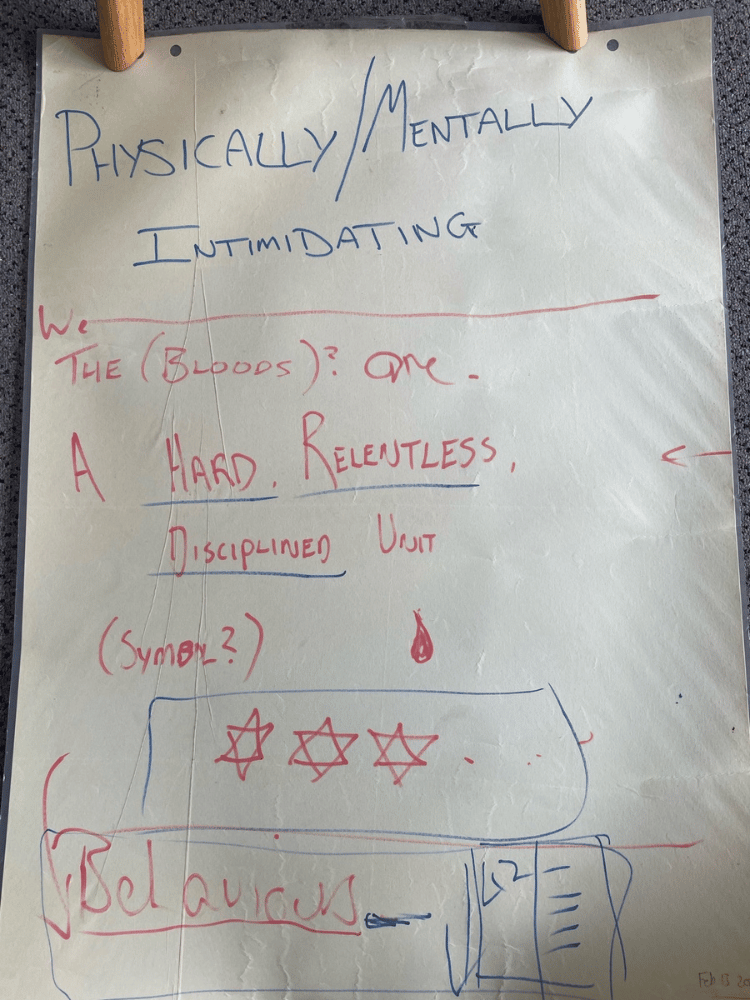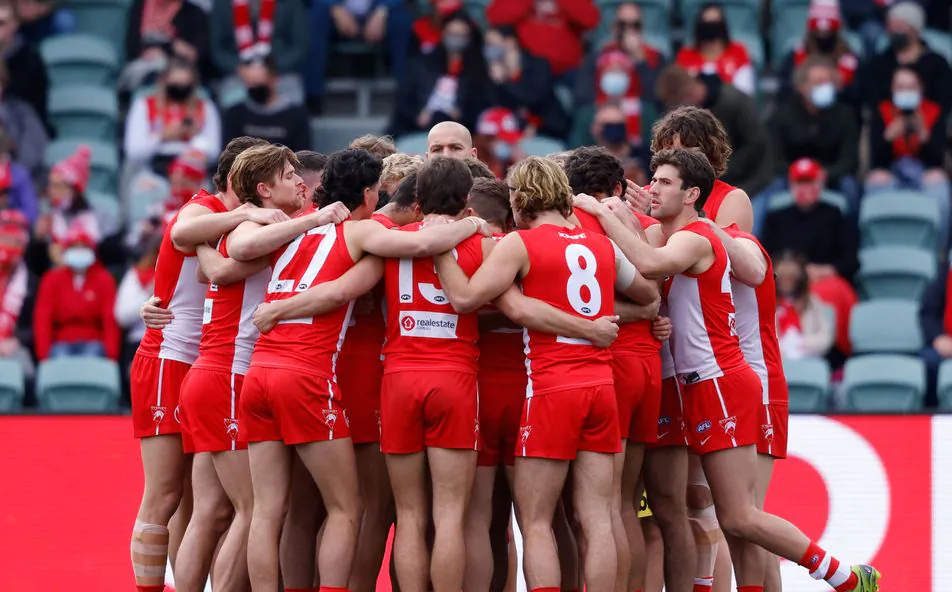When Ray McLean, co-founder of Leading Teams, first started working with organisations to help them become high performing he held the view that his time with them had an expiry date. His view was that, ‘we help them (teams) to set the culture and then leave.’ The Sydney Swans Football Club changed that view significantly and 20 years later Leading Teams continues to partner with them to implement a player empowerment model that develops leaders and sustains the high-performance culture of The Bloods.
‘I do think there is a view in the AFL and more broadly in sport and business that you need to find the new way all the time. The Swans are a great story of embedding your culture and then looking for innovation. This means that when you embed a great culture you can recruit from within (past players now in key roles).’
Sydney Swans were formerly the South Melbourne Football Club based at the Lakeside Oval in South Melbourne from 1874-1982. South Melbourne were considered a poorly performing club over a long period of time. In 1982 they were coerced into relocating to Sydney as part of the AFL expansion, given very little support and it was a tough grind. During the 1990s (through AFL and corporate support) they stabilised somewhat.
Today they are one of the leading brands in the AFL, employing around 140 staff and sustaining high performance over many years. They have recently added an AFLW team and recently moved into arguably the best training facility in the AFL.
Ray McLean and Paul Roos (the Sydney Swans Head Coach at the time) met in 2002. They shared the same vision of player empowerment and leadership, and in 2003 Leading Teams joined with the Sydney Swans to commence a performance improvement program.
Ray remarks ‘When we joined the Swans the aim was not only to win a long-awaited premiership but to set a long term sustainable high-performance culture in Sydney (whilst not leaving their South Melbourne history behind).’ A significant part of Leading Teams role at the Swans was to assist players and coaches to develop a trademark (a creed or code to bring everyone together and to articulate the culture we wanted).
The players reached back into the club’s history and decided they wanted to reinvigorate the Bloods ethos. The players wanted to take the tough elements of the Bloods history but also shape it somewhat for the modern day. By choosing the Bloods as their trademark, it did give older past players from South Melbourne a greater feeling of belonging and reason to reconnect with the Sydney Swans.

First draft of the Bloods trademark in 2003
Also in 2002 John Longmire, the current Swans Head Coach, joined Sydney as an Assistant Coach, following a successful playing career. John and Paul are well known in the AFL as being a part of the only successful succession plan in coaching. Paul announced well in advance that he would not seek a contract extension and rather than go to the market (as is normally the case) the Swans developed John to take over the senior coaching position in 2010. To this day there is still no other club who has managed this sort of succession so successfully.
Ray is joined by John Longmire of our latest episode of Leading Conversations, and together they explore our longstanding partnership and reflect on some of the great moments and stories that they have witnessed over the past 20 years. Listen below.
Under the player empowerment model the Swans adopted many changes that were considered a bit unusual at the time but have largely become standard practice in the AFL. For example, the open selection of the leadership group, players empowered to select their leaders based on their trademark and accompanying behaviours. Reviews are based on the Bloods effort rather than pure technical analysis and are much more player driven than just the coach. Leaders are being heavily involved in driving culture and managing behaviours of the team.
Currently Kurt Wrigley, one of our Sydney-based facilitators is partnering with the Swans to embed their culture. This is what he has to say about the partnership now, ‘‘The Bloods’ culture has changed very slightly over the years and has been consistent for 20 years. Their trademark words are always front of mind and coaches find real examples of those behaviours on the field each week and display them on all the monitors at the club early in the week. The players use the words on nearly a daily basis to show examples of the expectations or not (reward & challenge). They are not just words and the history and care of how they have been handed on to the next generation is very evident.’
‘The younger players are formally and informally inducted into what the trademark words mean, and the Leaders play a key role in mentoring and supporting their progression.’
‘When they recruit new players, the trademark is front and centre on the type of young player they are bringing in. Talent/skills is one thing, but their capacity to live the trademark would be more important.’
It took only 2 years into our partnership with the Swans (2005). for them to break a 72-year premiership drought and over the previous 20 years the club has only missed finals twice. Since then, they have played in 6 grand finals and won 2 premierships. The ‘Bloods’ culture they have created is one that many other clubs in the AFL endeavour to emulate.
Leading Teams is proud of this on-going partnership and would like to thank everyone involved in the Swans over the journey for their commitment and dedication to their culture.





